Sarah Marchiset
Monday, 18th May 2020. The first French lockdown has been over for a week. Nevertheless, in the Garage Moderne* volunteers carry on cooking, three days a week, guiding by the expertise of Barnabé, chef of the restaurant of this associative place. Together, they transform food products from the Food Bank in meal box for people in precarious situation, including a majority of people in situation of migration living in reception centre and others living in a camp around the lake of Bordeaux.
The health crisis and the way in which it is managed by the politicians, reinforce the vulnerabilities people face. So called “migrants” are placed in a precarious situation, both regarding housing and food. Committed people for and with “migrants” are thus trying to limit the impact of Covid-19, itself a reflection of the public inhospitality reserved for exiled people. Asylum seekers or “undocumented migrants” are mostly excluded from legal employment. The possibilities for the usual “resourcefulness” (illegal work, resale of gleaned objects, begging…) are reduced, and dependence on food aid circuits is becoming exponential.
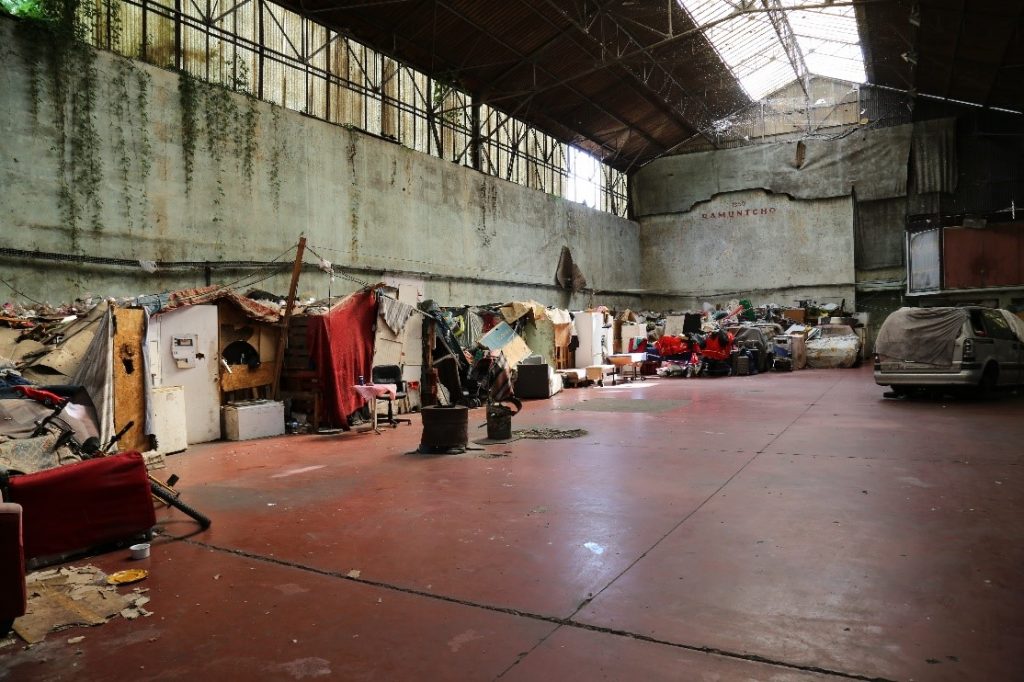
Photo credit: Cécile Quillien
Volunteers who work together in the Garage Moderne come from multiple background. Some of them come just once, while others are coming every week. In order to feel useful, to meet people, to go outside and/or because they love cooking… there is no lack of reasons for their engagement.
Some volunteers go twice a week to the Food Bank to get food. We can call this food “leftovers”, since it is mainly unsold products from supermarkets, which exempt from tax, using, as Bénédicte Bonzi (2019) showed, “poor eaters” as an adjustment variable.
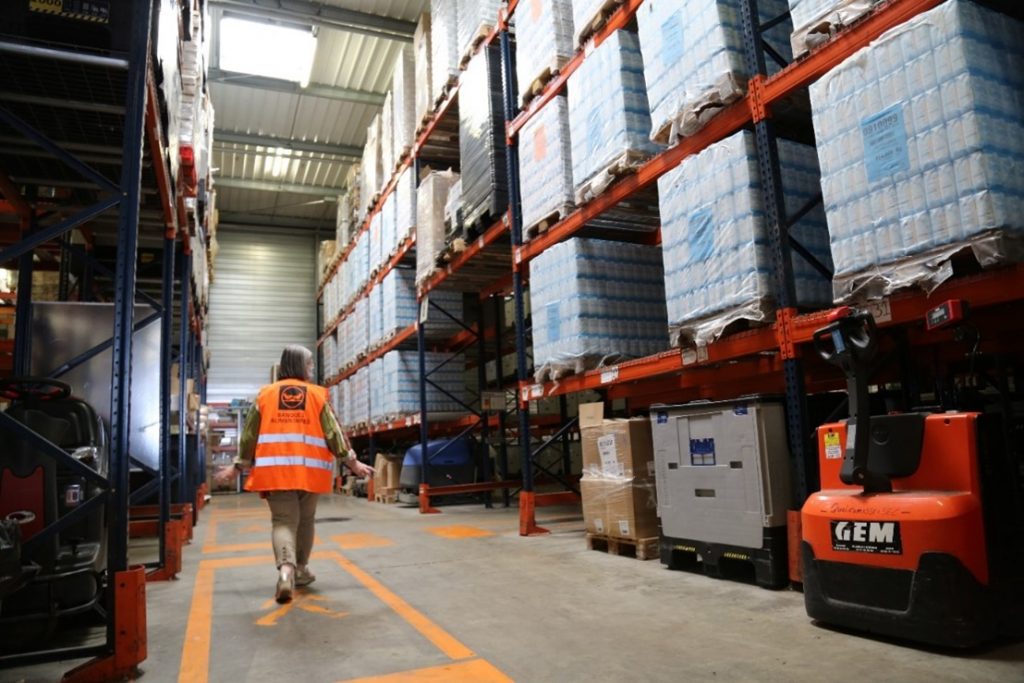
Photo credit: Cécile Quillien
However, volunteers want to give to this food a taste value. They have this strong hope that people will take pleasure eating it. They decide collectively the menu of the day, that is always vegetarian, for two reasons: because meat is seldom available in the food aid system, and because they want to anticipate, and respect, any food restrictions of eaters. They let their creativity express itself while dealing with food availability. Together, they transform often banal products into a unique meal with high added value, taste and feeling. This cuisine is made with sensitivity. It not only seeks to fill bellies, but also hopes to bring some comfort and sweetness to the hearts of eaters. In this, this cuisine teaches us about the interweaving of nutritional and symbolic dimensions of food (Cordeaux and Poulain, 2002).
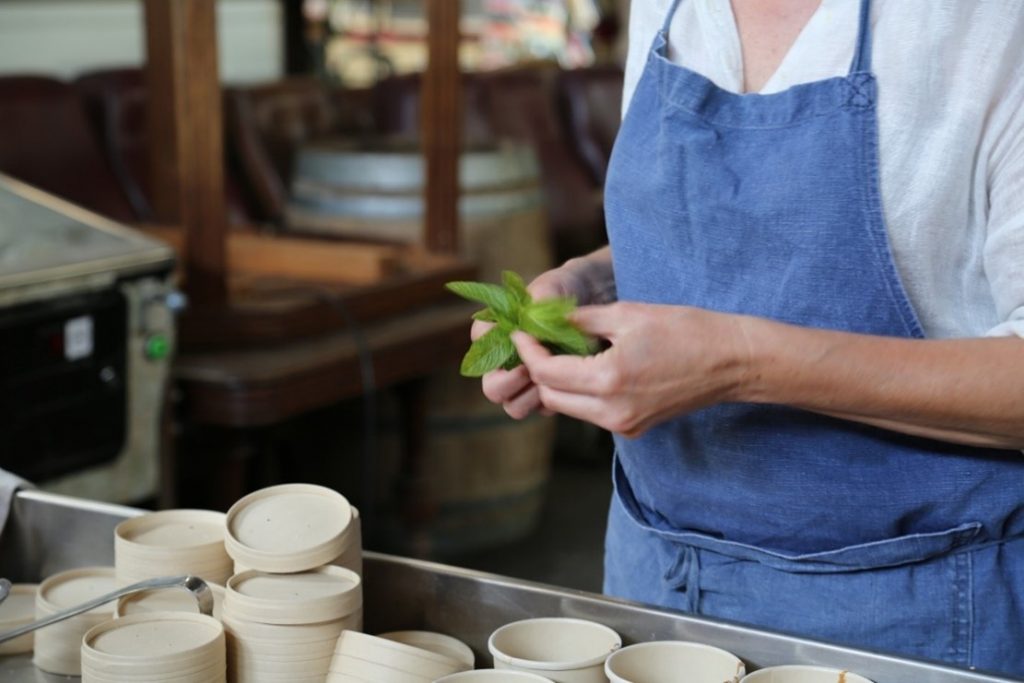
Photo credit: Cécile Quillien
Paying attention to this food initiative – which is only one initiative among many others – another question arises (for actors in the field, and therefore for researchers): dealing with leftovers is it a constraint? The only solution?
Despite the usefulness of this initiative, volunteers are increasingly questioning the overall food aid system, based on agro-industry. The lack of autonomy regarding food choice for people in situation of migration and precarity and the “quality” of the food given to them is becoming, indeed, a source of debate in associations, for volunteers who think in term of “social justice” and in term of “environmental justice”, with food at the intersection of these considerations.
The situation of emergency they face (“not letting people starve”), combined with a lack of human and financial resources seem to make it harder to think another food model. Moreover, this food aid system results from a political choice (Paturel and Ramel, 2017). In this situation of uncertainty, volunteers ask: “And after? Are we going to be able to continue feeding people for a long time?”
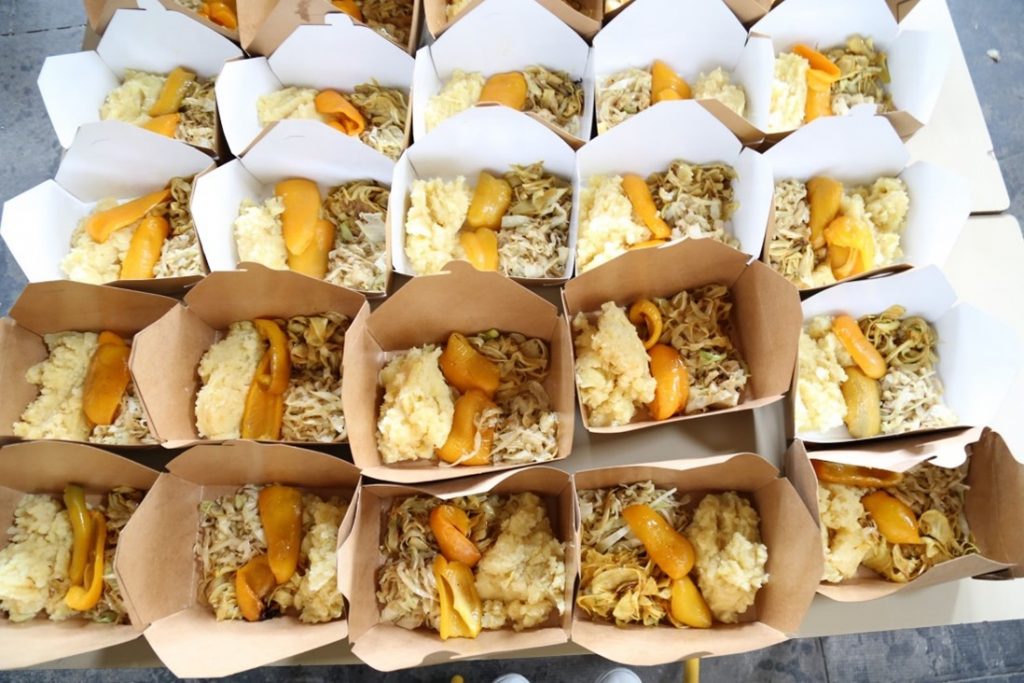
Photo credit: Cécile Quillien
In fact, committed people have an ambiguous feeling, between the desire to find themselves useful, and the feeling of “doing the job for the State” but with too little resources. Some of them confide in having the impression of “mettre un pansement sur une jambe de bois” (French expression to express the feeling of doing something almost useless). Facing these constraints, some committed people try harder, sometimes to the point of burn-out, mostly for those who combine food aid with other aid registers, such as administrative and legal aid, but also housing right (opening and/or defences of squats for example). To fight the feeling of shame that can overwhelm them when given food is already spoiled, or when there is hardly any fresh product, volunteers can redouble their efforts. This is the case in the Secours Populaire** in Bègles (city of the metropolis of Bordeaux) where volunteers collect as much food as they can in a lot of supermarkets, even on Saturdays. It is a way of honouring their commitment, as they are facing a significant increase of the number of people they help since the beginning of the health crisis (from around 90 to almost 200 registered***).
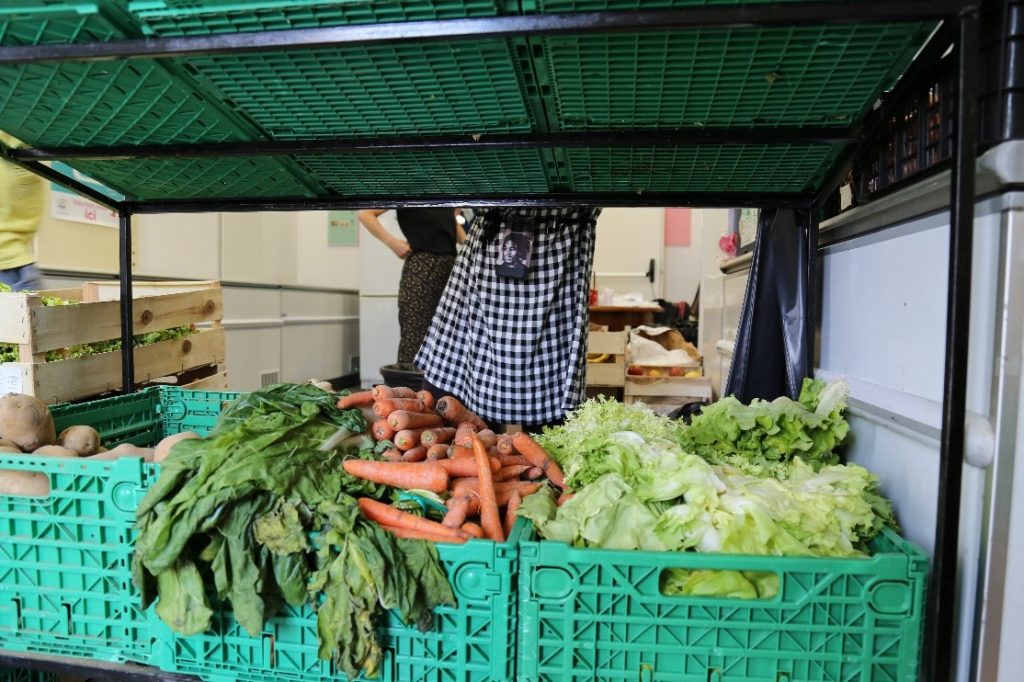
Photo credit: Cécile Quillien
To deal with Covid-19, volunteers had to adapt. In addition to an increasing number of food distributions per week, they carried out food distributions directly in the squats of the city. It was a question of targeting people in situation of great precariousness (housing, food, energy, administrative) who were not registered at the Secours Populaire and who faced the injunction of “staying at home” even though they did not have a proper home, and that the majority could not carry on to tinker for surviving (undeclared work, object resale…). Participating to these food distributions as a researcher was also an opportunity to challenge the stigmatizing idea that a one-side relationship exists between, “volunteers” and “beneficiaries”. Indeed, the food aid offered by the Secours Populaire is based on the dynamism and availability of volunteers, and some of them are themselves in a situation of migration and precarity. We find similar reasons for getting involved between sociological majorities and minorities. However, some motivations regarding commitment take more depth depending on people’s lived experiences. Fill the days is for example a recurrent theme for migrant people who are in situation of “expectancy” (Kobelinsky, 2014).
A specific reason to get involved for migrant people is related to the improvement of their application for asylum. As a matter of fact, the volunteer work of migrant people reveals a real moral economy of citizenship, reflecting the meritocracy system of the acquisition of a legal status (Agnès, 2019).
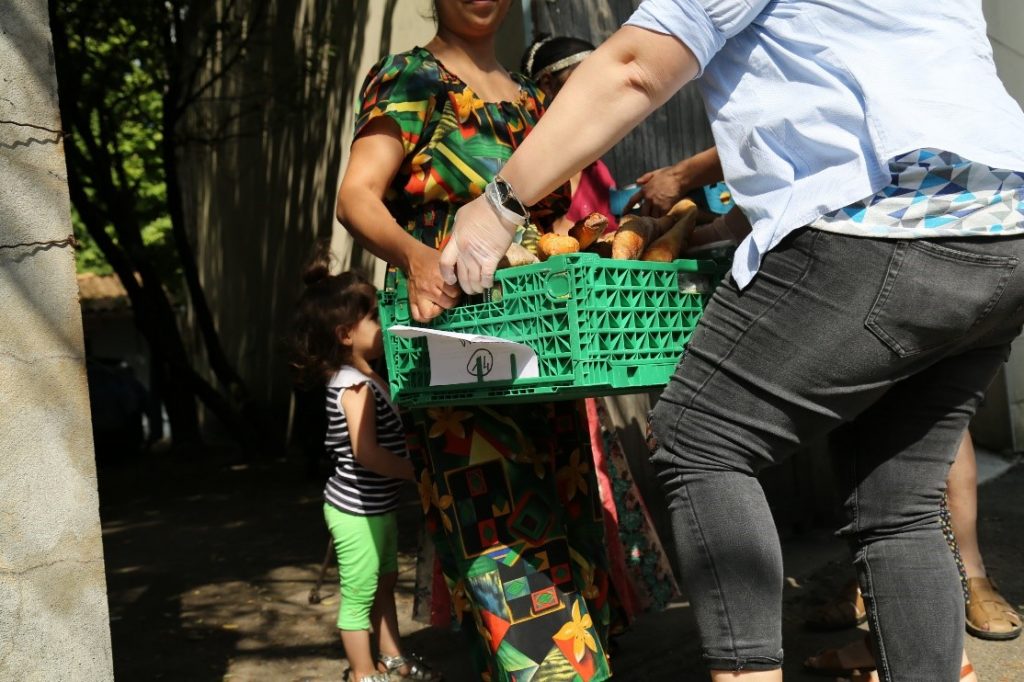
Photo credit: Cécile Quillien
With the beginning of the Covid-19, food precarity experienced by people in situation of migration globally increased. The fact that it is combined with housing and administrative precarity, leads us to question the place that our societies offer – or not – to people in a situation of migration, and invites us to reason in terms of right to the city (Lefebvre, 1968). To do so, we will carry on the reflexion with people we meet, in order to let them express their feeling concerning their daily life in Bordeaux since their arrival.
* https://www.legaragemoderne.org/
** https://www.secourspopulaire.fr/
*** 1 registered can be a single person or a family.
References:
Aubry Agnès (2019) « Le bénévolat d’hommes migrants en Suisse : travail gratuit et mise à l’épreuve civique », Critique internationale, 3, p. 147-164.
Bonzi, B, (2019), « Dilemme de l’aide alimentaire et conflits de normes », Socio-anthropologie, 39, p. 67-82.
Corbeau J-P, et Poulain J-P, (2002), Penser l’alimentation. Entre imaginaire et rationalité. Privat/Ocha.
Kobelinsky, C, (2014), « Le temps dilaté, l’espace rétréci », Terrain, 63, p. 22-37
Henri Lefebvre, (2009), (1968), Le droit à la ville. Anthropos.
Paturel, D, et Ramel, M, (2017), « Éthique du care et démocratie alimentaire : les enjeux du droit à une alimentation durable », Revue française d’éthique appliquée, vol. 4, no. 2, p. 49-60.